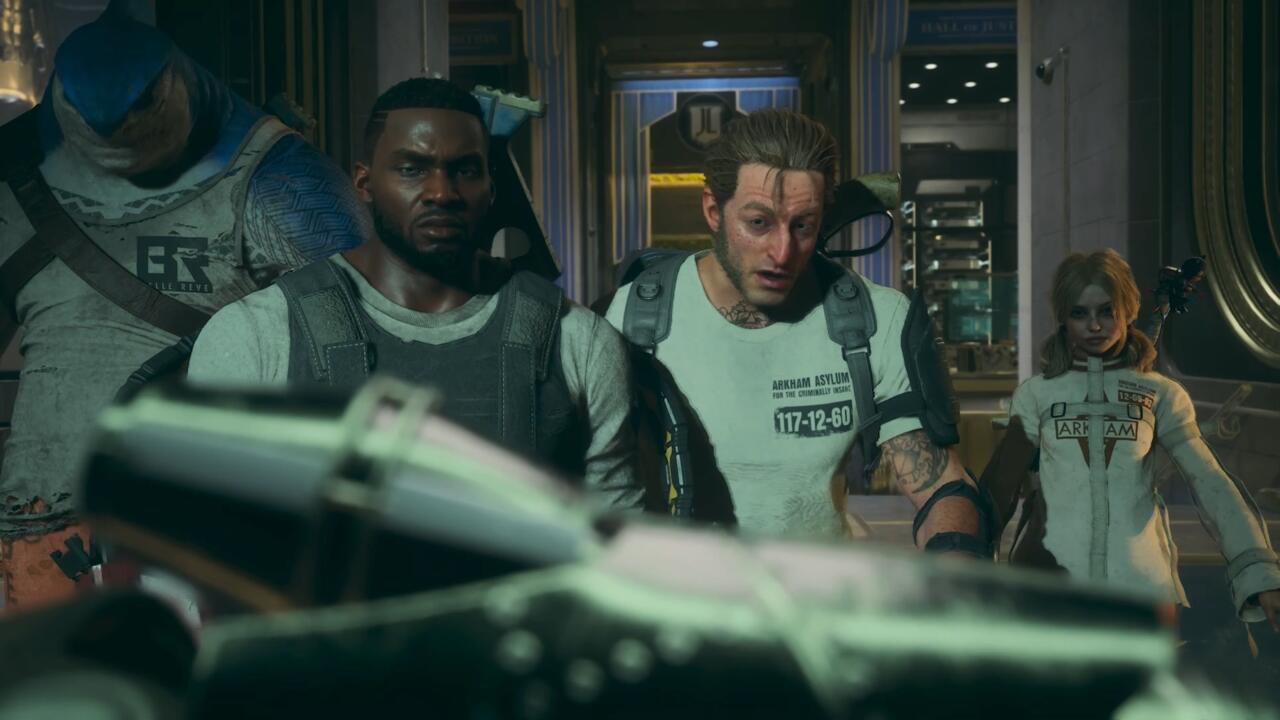With Suicide Squad: Kill the Justice League, developer Rocksteady Studios looks to bring elements of what made its open-world Batman games work to a cooperative, live-game framework. That raises a question, though: Live games require continuous content, but how can Rocksteady keep a game called "Kill the Justice League" going after players (at least presumably) kill the Justice League?
We recently attended a Warner Bros. Games preview event, where we played about five hours of Suicide Squad. Rocksteady wouldn't discuss the endgame players will see when they complete Suicide Squad's story campaign at the event. However, the studio announced in November that future seasonal content and additional playable characters will be free--which gives some sense of what players can expect from the game long-term. Rocksteady production manager Jack Hackett also talked about the studio's vision for the future of the game as well.
Now Playing: We're Still Not Sure About Suicide Squad: Kill the Justice League | GameSpot Hands-On Preview
Hackett's conception of Suicide Squad is almost as two games. There's the "boxed package" of the Suicide Squad story, in which you'll complete the mission of taking on the Justice League. Rocksteady wouldn't provide any details about Suicide Squad's endgame but did mention that additional characters, with their own play styles and movement abilities, will be released post-launch. Hackett also described Suicide Squad's future as offering Rocksteady the ability to tell additional stories in the future that might not otherwise make it into games.
Read our hands-on impressions of Suicide Squad: Kill The Justice League
"I think the compelling thing about making a live-service game in the DC universe specifically is, there are parts of the DC universe--characters, stories, locations, the whole spectrum of it--that wouldn't necessarily get love and attention in a video game as a standalone thing," Hackett said in an interview with GameSpot. "We've got the boxed game with Suicide Squad. The story is there and it's a compelling kind of standalone experience, but we're going to then use it as a launching pad to let you play as characters you probably never thought would be protagonists in a game, and let you see places and characters and parts of the DC lore that you might never have thought you'd see in a game."
"Normally, our games have been self-contained, and when they're done, they're done. But now we can take it to some places that may be a little bit weird or unexpected that you aren't going to make the whole self-contained story about, necessarily," he continued. "So, I think that's a really cool opportunity and it's like, as a DC fan, there's some stuff that we at least are thinking about in the pipe that I would never have thought would show up in a DC video game."

While Suicide Squad is a live game built to be played over and over continuously, Hackett said he doesn't see it as the infinite treadmill that these types of games can become. Rocksteady previously announced that post-launch content and additional playable characters for Suicide Squad will be free, which Hackett said takes the burden of "getting your money's worth" off players and allows them to tune in to whatever content interests them, for as long as they feel like playing.
Rocksteady has worked to make the game scalable and replayable for players who want that kind of experience, Hackett said, but that's not the only kind of experience he wants the game to provide.
"I want people, long after the game's out, I want them to see, 'Oh, wow, there's an update with this new character and this new place. Cool. I want to go and check that out for a bit,' and then maybe dip out for a while again and come back again later. I think that's fun," he said. "That can be compelling without being a second job. Come visit and see the new thing. ...I think some people are going to want to be the world leaderboard head, you know. Some people are going to want to be, 'I have figured out every optimization for Deadshot, I know exactly what I'm doing, I am making the YouTube guides, I am competing.' And that's fun for some people, but I don't think all players need to be that engaged with the game to get fun out of coming back."
Hackett likened the stories Suicide Squad means to tell to the way comics unfold. The boxed story of Suicide Squad is similar to a crisis event in comics, he said.

"Comic books have been really good at telling self-contained stories that lead into other stories, that lead into an overarching narrative, for a hundred years," he said. "So we had a pretty good model to go on, where this is kind of our central comic book event here. But it's not like, after a crisis event in the comics, then all the comics stop. It's not like, 'And then there were no more Suicide Squad comics.' They keep going, and I think we want to have a similar structure here."
According to Hackett, providing too much information about the structure of Suicide Squad's endgame would spoil how the story eventually will shake out. But he also said that Rocksteady knows understanding a live-game's long-term structure is important to players, and the studio intends to share more information closer to the game's release.
Suicide Squad: Kill the Justice League releases on Xbox Series X|S, PlayStation 5, and PC on February 2.
Got a news tip or want to contact us directly? Email news@gamespot.com
